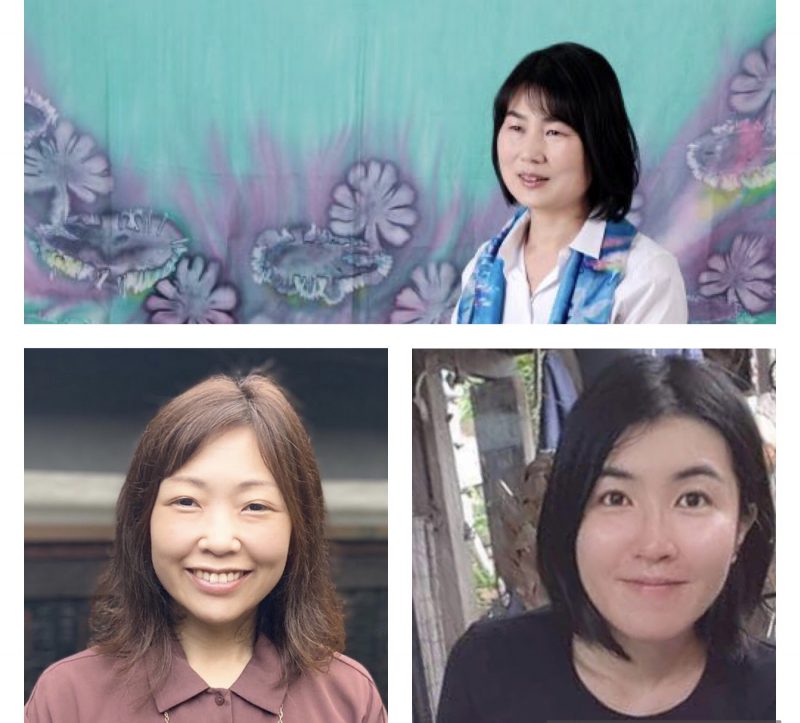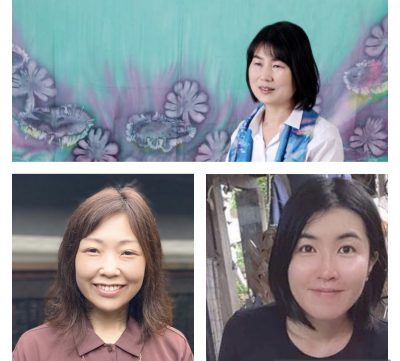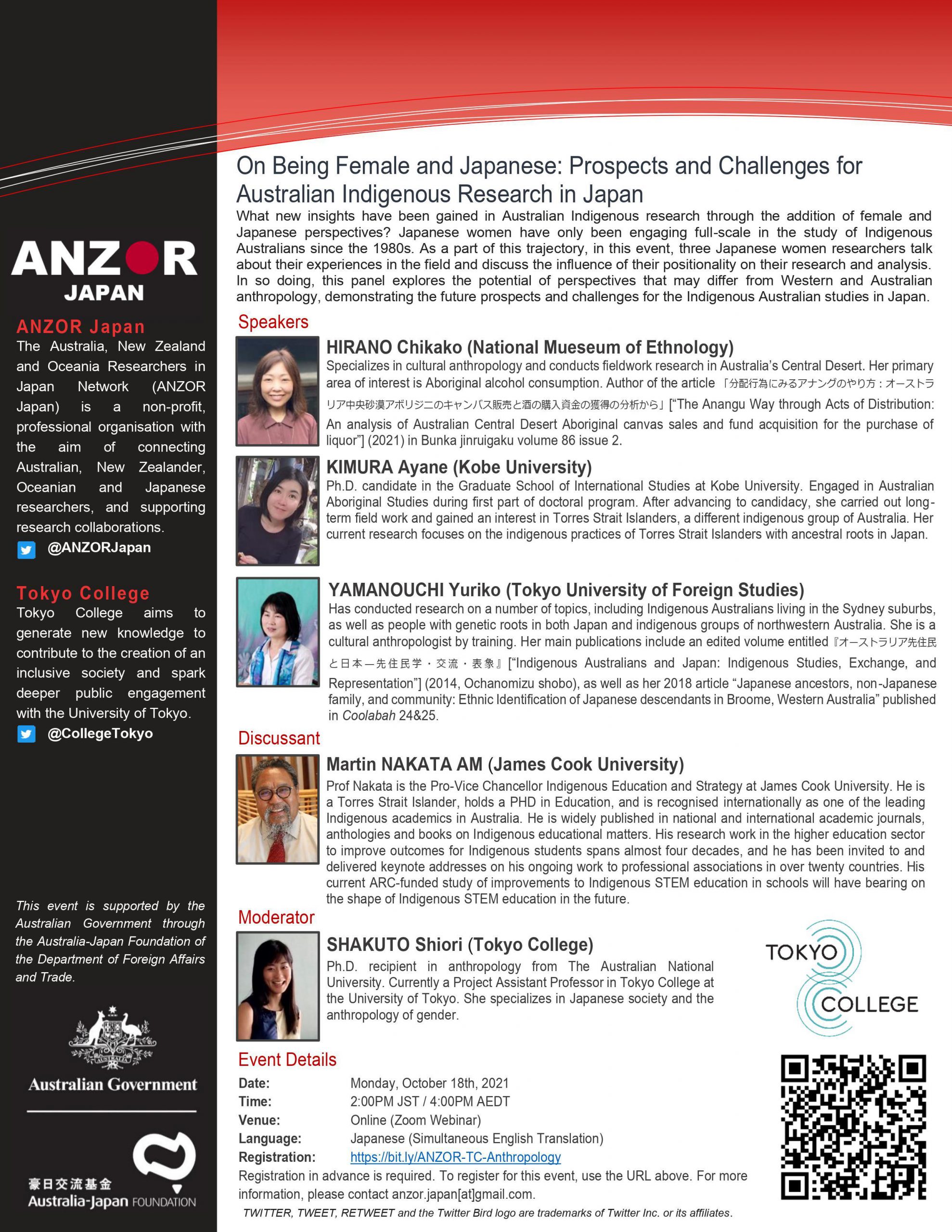On Being Female and Japanese: Prospects and Challenges for Australian Indigenous Research in Japan

| Date(s) | Monday, 18 October, 2021 14:00-15:30 (JST) |
|---|---|
| Venue |
Zoom Webinar (Register Here) |
| Registration | Pre-registration required |
| Language | Japanese (with simultaneous English translation) |
| Abstract |
What new insights have been gained in Australian Indigenous research through the addition of female and Japanese perspectives? Japanese women have only been engaging full-scale in the study of Indigenous Australians since the 1980s. As a part of this trajectory, in this event, three Japanese women researchers talk about their experiences in the field and discuss the influence of their positionality on their research and analysis. In so doing, this panel explores the potential of perspectives that may differ from Western and Australian anthropology, demonstrating the future prospects and challenges for the Indigenous Australian studies in Japan. |
| Program |
Speakers HIRANO Chikako (Assistant Professor, National Museum of Ethnology) KIMURA Ayane (Ph.D. Candidate, Kobe University) YAMANOUCHI Yuriko (Associate Professor, Tokyo University of Foreign Studies)
Discussant Martin NAKATA AM (Professor, James Cook University)
Moderator SHAKUTO Shiori (Project Assistant Professor, Tokyo College) |
| Speaker Profile |
HIRANO Chikako Specializes in cultural anthropology and conducts fieldwork research in Australia’s Central Desert. Her primary area of interest is Aboriginal alcohol consumption. Author of the article 「分配行為にみるアナングのやり方:オーストラリア中央砂漠アボリジニのキャンバス販売と酒の購入資金の獲得の分析から」[“The Anangu Way through Acts of Distribution: An analysis of Australian Central Desert Aboriginal canvas sales and fund acquisition for the purchase of liquor”] (2021) in Bunka jinruigaku volume 86 issue 2.
KIMURA Ayane Ph.D. candidate in the Graduate School of International Studies at Kobe University. Engaged in Australian Aboriginal Studies during first part of doctoral program. After advancing to candidacy, she carried out long-term field work and gained an interest in Torres Strait Islanders, a different indigenous group of Australia. Her current research focuses on the indigenous practices of Torres Strait Islanders with ancestral roots in Japan.
YAMANOUCHI Yuriko Has conducted research on a number of topics, including Indigenous Australians living in the Sydney suburbs, as well as people with genetic roots in both Japan and indigenous groups of northwestern Australia. She is a cultural anthropologist by training. Her main publications include an edited volume entitled『オーストラリア先住民と日本―先住民学・交流・表象』[“Indigenous Australians and Japan: Indigenous Studies, Exchange, and Representation”] (2014, Ochanomizu shobo), as well as her 2018 article “Japanese ancestors, non-Japanese family, and community: Ethnic Identification of Japanese descendants in Broome, Western Australia” published in Coolabah 24&25.
Martin NAKATA AM Professor Nakata is the Pro-Vice Chancellor Indigenous Education and Strategy at James Cook University. He is a Torres Strait Islander, holds a Ph.D. in Education, and is recognised internationally as one of the leading Indigenous academics in Australia. He is widely published in national and international academic journals, anthologies and books on Indigenous educational matters. His research work in the higher education sector to improve outcomes for Indigenous students spans almost four decades, and he has been invited to and delivered keynote addresses on his ongoing work to professional associations in over twenty countries. His current ARC-funded study of improvements to Indigenous STEM education in schools will have bearing on the shape of Indigenous STEM education in the future.
SHAKUTO Shiori Ph.D. recipient in anthropology from The Australian National University. Currently a Project Assistant Professor in Tokyo College at the University of Tokyo. She specializes in Japanese society and the anthropology of gender. |
| Organized by | Joint Event: The Australia, New Zealand and Oceania Researchers in Japan Network (ANZOR Japan) / Tokyo College, The University of Tokyo |
| Contact | tokyo.college.event@tc.u-tokyo.ac.jp |














